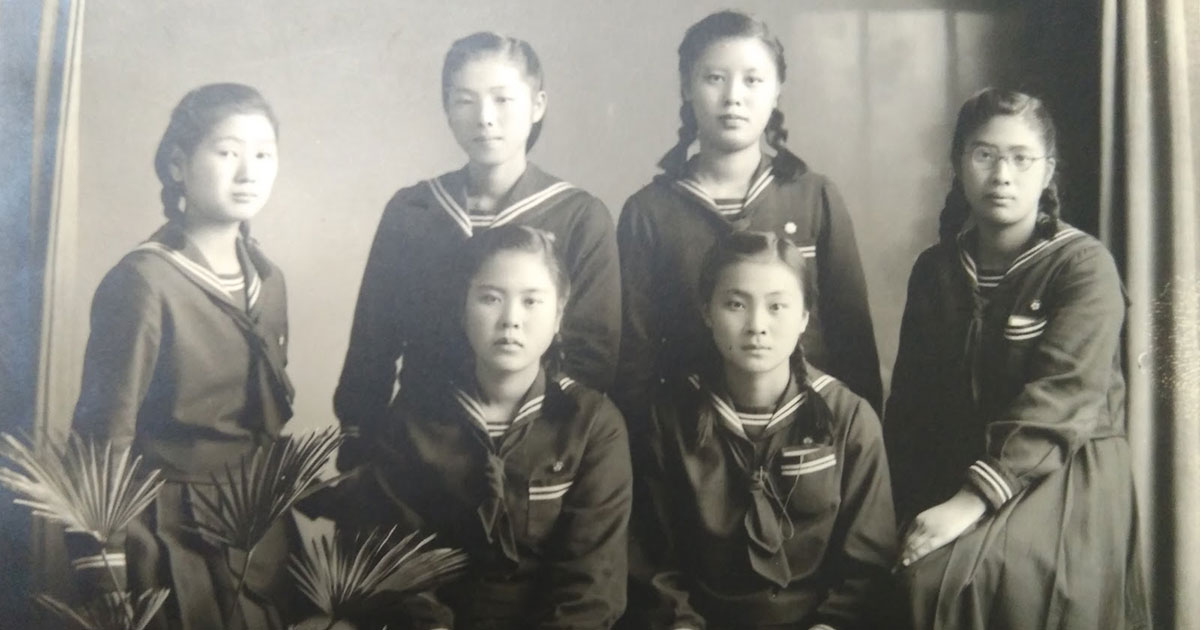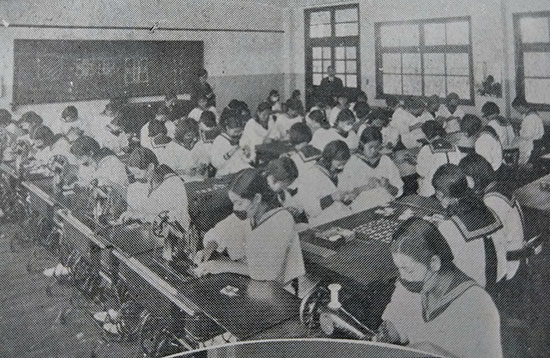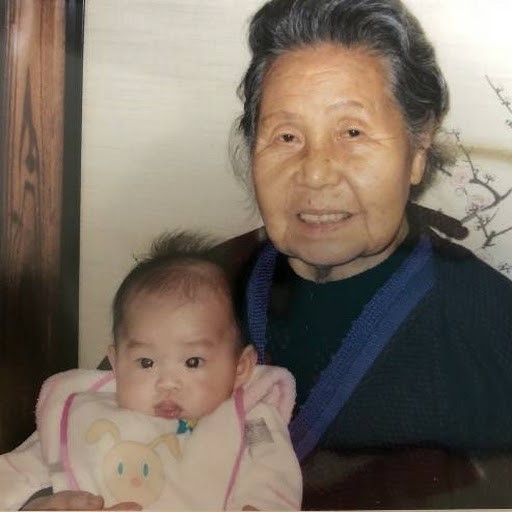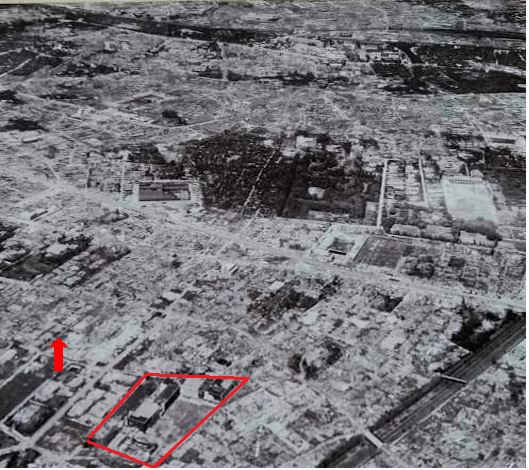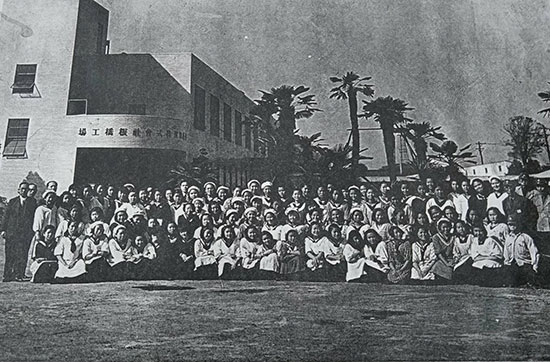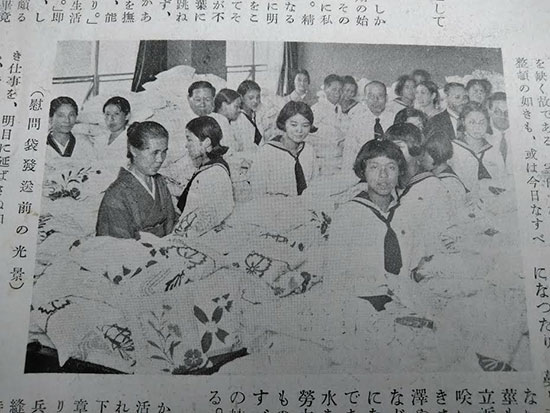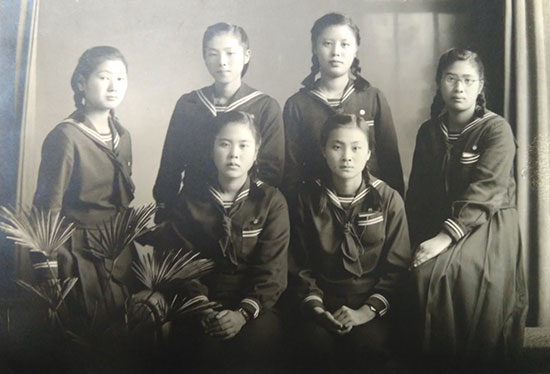Jumonji Gakuen High School - Tokyo, Japan.
Founded in Tokyo in 1922, Jumonji Gakuen High School is a private girls' school with both Junior and Senior campuses. The students investigated their school's World War II experiences as told by the alumni, women on the home front, the Tokyo air raid and stories from war survivors.
Women and High School Girls’ Home front during WW2 in Japan
Communication Objective
Through sharing the stories of the war survivors, we would like to tell how people can easily be involved in the war. We mainly focused on high school students and women. We hope the stories help people imagine what it was like to live the home front lives.
Our research
We investigated about high school girls’ home front of Japan. High school girls were forced to play an active role to support the Japanese home front. For Japanese, WWII was a war in all directions. All power within the country was collected. So women, students or even children were forced to support the home front. For example, girls had to work in war plants. We got interested in what they felt and thought back then. As they were around our age, we can think as if they are us.
Also, we studied other things: women’s home front, air raids and what individual girls, their mothers, and their other family members experienced. Now that we know some more about the lives at the home front, we can imagine how the people would have felt a little more clearly than before.
"We mainly focused on women and girls’ home front. They believed what they were told; that Japan would win the war. They had to work at factories and support their family members. They liked chatting with their friends and wanted to learn something new like we do now. But gradually they were forced to cooperate with the war effort. Listening to them, we realized that the peace we have now is not something we can take for granted."
Home front of our High School Girls' in Tokyo during Second World War
Story by Yumi
In Japan, many teenagers were forced to cooperate with the war effort. Ms. Oda, a Jumonji High School alumni (enrolled from 1942-1947) whom we interviewed, was forced to work for factories making warfare goods and printing bills used in Japan’s colony in China. She had classes only one day each week. Even though she entered Jumonji Girls’ High School because she had wanted to study hard, she could not.
Our research illustrates the high school girls’ home front in Tokyo during the war, with special attention paid towards Jumonji High School in Tokyo.
Home front people’s lives in Japan: frugal and monitored by neighbours and the government
Story by Marino
According to the “National Mobilization Law,” which was enacted in 1938, the government of Japan gradually implemented laws to win World War Two. Neighbourhood associations were established throughout Japan to monitor the activities of people in the community and encourage them to support the Japan Imperial Armies. Under these circumstances people had to be divided, and healthy men aged 20 to 60 years old were drafted into the military. Therefore, women had to carry all burdens both at home and in society, under extreme insufficiency in food, fuel, and other materials.
Japanese women during the Second World War
Story by Ami
Women of the home front had to do housekeeping and child raising all by themselves. Many women also had to work outside and in factories, as many male workers were drafted to the military. That time had a serious shortage of various materials. Therefore, foods and daily necessities were rationed.
When not only their husband, but also their sons, were sent to the military as troops, women had to send them off while waving the national flag of Japan. They made a comfort bag and "sennin-bari" for the men. Comfort bags were made to raise the moral of troops. They contained various daily necessities, photos, medicine, amulets, and letters. "Sennin-bari" were used to ward off bullets. They were made of white cloth and were stitched one thousand times with red thread. Home front women did various things with great devotion.
Tokyo Air Raids in 1945
Story by Haruna
During the war, both soldiers and civilians died due to air raids. The metropolitan Tokyo area received 106 raids from November 24, 1944, to August 15, 1945. More than 1 million people were victims, including over 100,000 deaths caused by the March 10, 1945 air raid which was the most destructive. The buildings of Jumonji High School, which were built of reinforced concrete, were destroyed by air raid on April 14, 1945.
At that time, elementary school students were evacuated to rural areas. Most high school girls, on the other hand, remained in Tokyo, and they managed to study at school and to work at military factories. When air raids started around Tokyo, every day and night, many houses, schools and, military factories were burnt one after the other, and female students were forced to evacuate to the rural areas as well. However, there were also school girls who believed that schooling should continue and stayed in the burnt town of Tokyo.
A story of a 103 year old great-grandmother of a Jumonji student
I have a great grandmother who experienced the Second World War. I asked about her to her son and her daughter.
When Second World War started, they and her husband lived in Tokyo. However her husband went to the Philippines because of the war. The day before the Tokyo Air Raid, Haruko pulled the hand with her daughter carrying her son and went to Sendai by the train in 17 hours.
In Sendai they suffered because of lack of self-sufficiency life. Even in such a life they said they were helping with local people.
However her husband died in the war. This was her biggest sorrow. But even so she always said "we cannot eat unless we work" and she worked every day. Her son and daughter are very grateful to her.
I think women have strength that is not armed.
A story of the grandmother of Jumonji student: she went to Nippon Girls High School
Story by: Misato
During the Second World War healthy adult men were drafted to the military, but women and students also suffered. My grandmother entered Nippon Girls’ High School in 1944 and transferred to Tokyo Girls’ High School shortly afterwards. The high school was destroyed by an air raid in 1945. She barely escaped with her life. As there was no longer a high school building to attend, she had to work at the National Railway Co. as part of student mobilization. Therefore, she was never able to experience life as a high school student.
